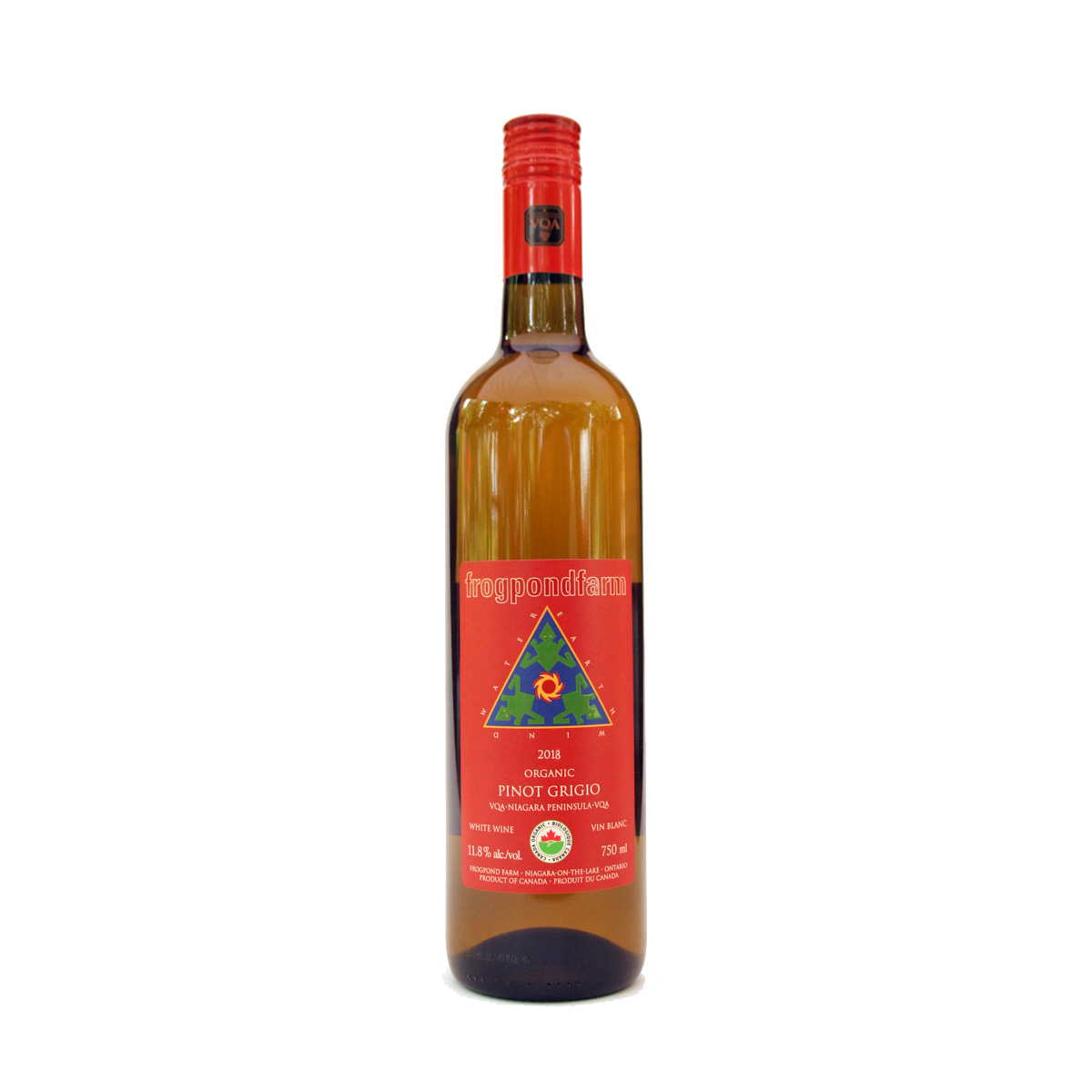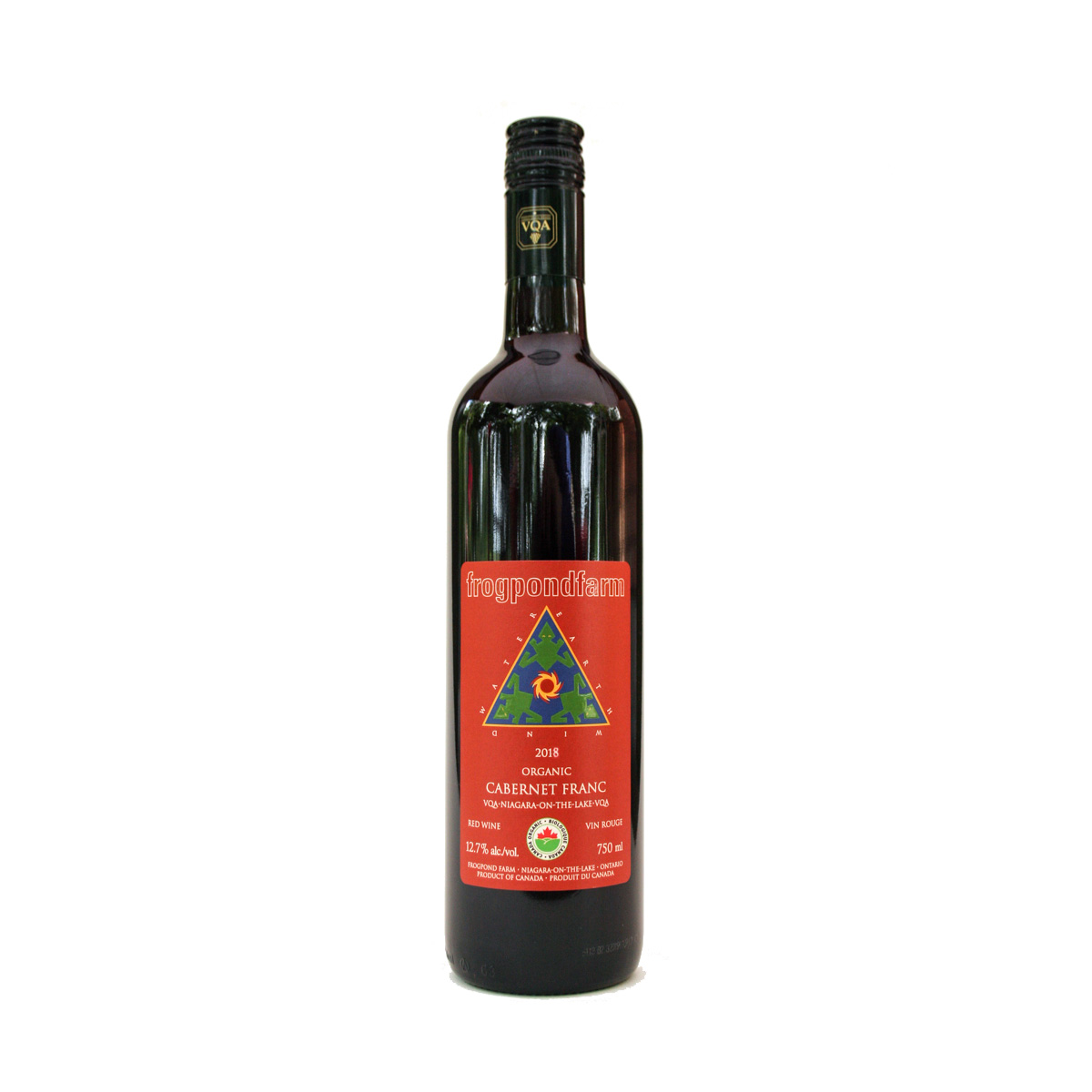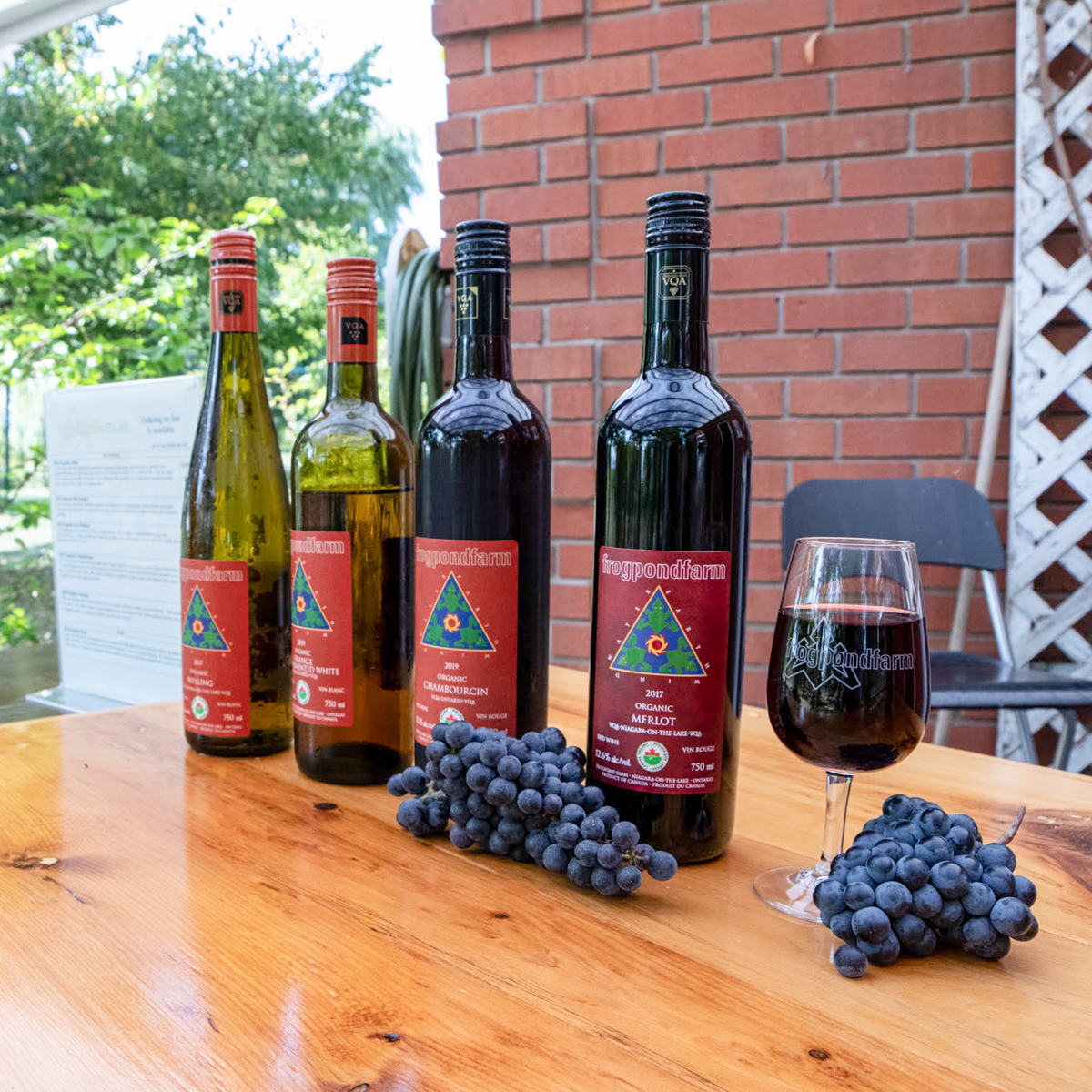What is organic wine?
Simply put, organic wine is made from organically grown grapes. However, certified organic wines have to comply with a two step process. First, in growing grapes we do not use herbicides or insecticides in our vineyards nor any synthetic or chemical fertilizers. Second, in the wine making process, we do not use any synthetic chemicals such as polyvinyl-polypyrrolidone (PVPP, a decolourant) or potassium sorbate (a preservative).
How do you control for pests and diseases in an organic vineyard?
For grapevine pests, we plant companion plants between rows of vines to attract beneficial insects that naturally reduce the populations of damage causing insects. We also use mating disruption by placing grape moth pheromone ties in the vineyard thus confusing the males who are unable to locate the females thus preventing a new generation of grape berry moths. Finally, we have a hard-working crew of West African Guinea Fowl who have an appetite for bugs!
To control fungal diseases which could cause serious damage to the vines and grape crop, we make sure there is air-flow through the vine canopy by leaf pulling and hedging.
What are the benefits of organic wine?
The benefits are many! Some people can actually taste a difference as organic grapes are healthy and balanced. With quality raw ingredients, it is easier to make great wine! There are health benefits, too, by ingesting no chemical pesticide residues and less sulfites (which act as a wine preservative). By drinking ‘organic’ you are also helping support producers who are dedicated to create a cleaner environment and protecting soils and water as well as vineyard workers!
Who certifies you as “organic” and how often are you checked?
Our organic certification is done annually by Pro-Cert (accredited by the Canadian Food Inspection Agency). Pro-Cert’s certification program is recognized globally. They make sure that the entire process from farming the grapes to the winemaking process complies with the highest organic standards.
Did you know?
- To qualify as organic, a vineyard must adhere to strict protocols which include record-keeping, inspections, paying a fee and ensuring that suppliers are also certified organic.
- Organic certifying agencies require short notice inspections and soil samples.
- To become a certified organic grower, the soil must be free of pesticide use for at least three years.
Why is organic certification important?
Well, it’s a guarantee that the product is as stated and that the producer is doing what she/he should be doing. It also makes an equitable playing field, all organic products must adhere to the same standard.
In grocery stores “organic” usually means higher prices. Is this true for organic wines?
Surprisingly, no. Organic wines can be found at many different price points. Our wines are very reasonable ranging between $14.00 – $35.00 CAD.
What is the difference among sulfur, sulfur dioxide (SO2), and sulfites? (Sulphur and sulphites are alternate spellings)
First, sulfur is a natural element and a macronutrient for all living organisms. SO2, sulfur dioxide, is a gas in our environment and it is also used as a food preservative because it acts as an antioxidant and antimicrobial agent.
Sulfites are substances that naturally occur in some foods and the human body. They are also regulated food additives that are used as preservatives to maintain food colour and prolong shelf-life, prevent the growth of micro-organisms and to maintain the potency of certain medications. Sulfites are also used to bleach food starches (e.g., potato) and in the production of some food packaging materials (e.g., cellophane). Learn More.
Why does the label say “contains sulfites” when it’s organic wine?
Well, actually all wine contains sulfites because it is a by product of fermentation. These naturally occurring levels can be up to 10 mg/l (10 ppm). Organic wines in Ontario are allowed up to 30 mg/l (30 ppm) but our wines are generally lower than that.
Did you know?
- Wine makers add sulfur to keep the wine stable and to act as an antioxidant, for colour and flavour protection.
- Foods that often contain sulfites include beer, cider, vinegar, bottled lemon juice, canned and frozen fruits and vegetables, ketchup, dried fruits, fruit and vegetable juices, deli meats, shellfish, and soy products. See full list here.
Am I allergic to the sulfites in wine?
Perhaps. But only 1 – 2% of the general population has an allergic reaction to sulfites in food and drink, usually involving the respiratory system. Other triggers in wine that can cause adverse reactions such as headaches, flushed skin, accelerated heat rate, bowel irritation etc. may come from naturally occurring histamines and tannins (found in grape skins, pips, and stems and included when fermenting red or orange wines).
For a list of sulfite reactions, visit Food Allergy Canada.
If the wine has low sulfites, what is its shelf-life?
We produce wine that is ready to drink and which does not require further ageing. The shelf life of organic wines are comparable to conventionally made wines.
Are your wines vegan?
Yes, because we do not use animal based products in winemaking to fine or clarify the wine. Common products used for fining include animal gelatin, isinglass (fish bladder product), egg whites or casein (milk product). Our wines are unfined and are left to clear naturally by gravity.




